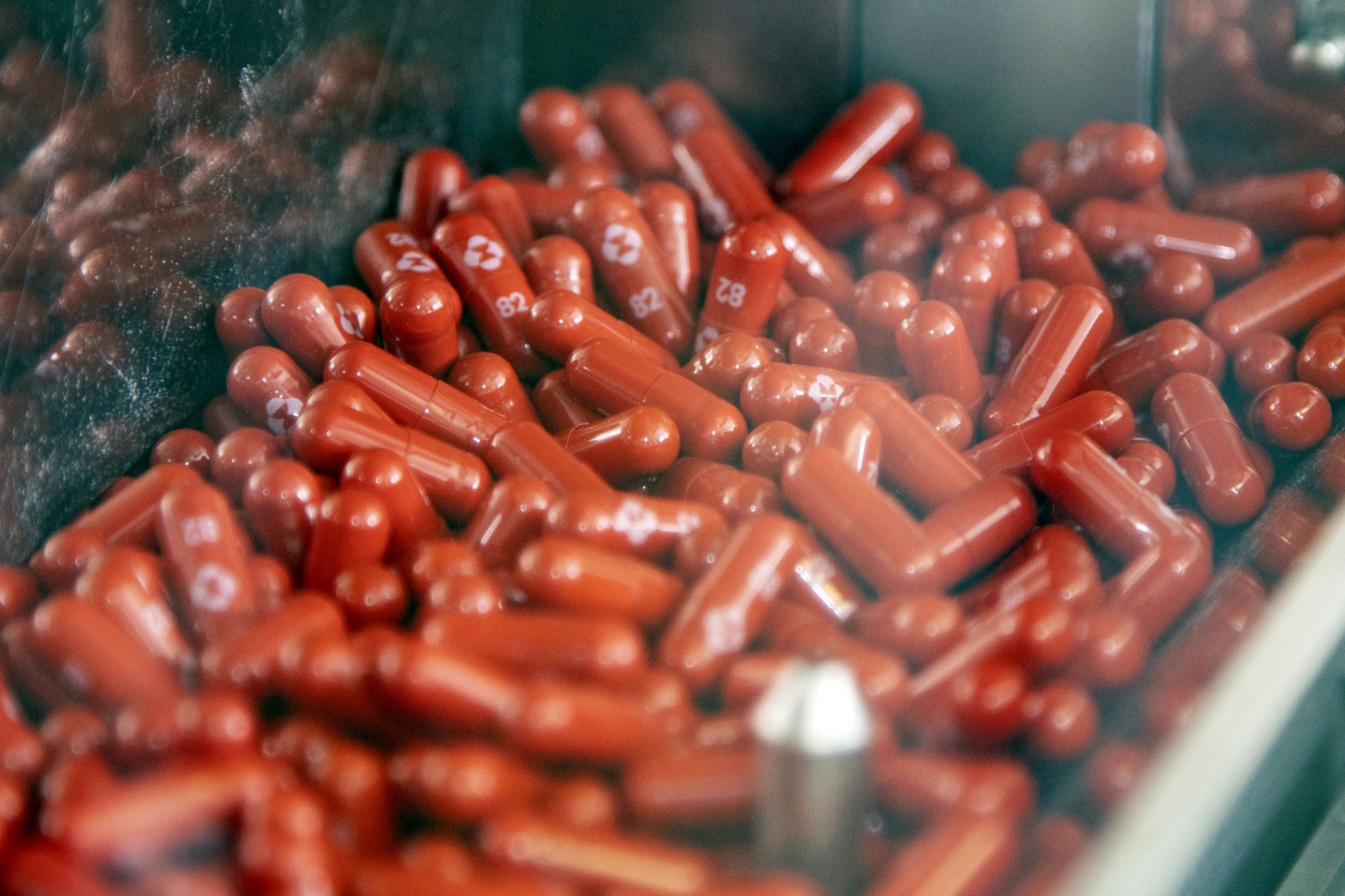Federal health regulators say an experimental Covid-19 pill from Merck is effective against the virus, but they will seek input from outside experts on risks of birth defects and other potential problems during pregnancy.
The Food and Drug Administration posted its analysis of the pill ahead of a public meeting next week where academic and other experts will weigh in on its safety and effectiveness. The agency isn’t required to follow the group’s advice.
The FDA scientists said their review identified several potential risks, including possible toxicity to developing fetuses and birth defects that were identified in studies of the pill in animals.
Given those risks the FDA will ask its advisers next Tuesday whether the drug should never be given during pregnancy or whether it could be made available in certain cases.
Given the safety concerns, FDA said Merck agreed the drug would not be used in children.
Regulators also noted that Merck collected far less safety data overall on its drug than was gathered for other Covid-19 therapies.
“While the clinical safety data base was small, there were no major safety concerns identified,” FDA reviewers concluded.
Additionally, the FDA flagged a concern that Merck’s drug led to small changes in the coronavirus’ signature spike protein, which it uses to penetrate human cells. Theoretically, FDA cautioned, those changes could lead to dangerous new variants.
Merck’s drug uses a novel approach to fight Covid: it inserts tiny mutations into the coronavirus’ genetic code to stop the virus from reproducing.
But that genetic effect has raised concerns that in rare cases the drug could cause birth defects or even spur more virulent strains of the virus.
Pregnant women were excluded from Merck’s study, and both women and men in the study were instructed to use contraception or abstain from sex.
Among more than 1,400 adults in a company study, molnupiravir reduced the combined risk of hospitalization and death by 30 percent, less than the 50 percent initially reported based on incomplete results.
Nearly 7 percent of patients who received Merck’s drug within five days of Covid symptoms ended up in the hospital and one died. That compared to 10 percent of patients hospitalized who were taking the placebo and nine deaths.
If one is faced with death or possible side-effects from a pill, one would certainly say, "give me the pill, doc."
When malnupiravir was first being hyped as a game-changer, the data was something like 80% effective against severe COVID. Now those numbers have dropped to 30%, and carry the potential of new dangerous variants. This is why there is a process in developing new drugs. But I'm sure Merck will make a lot of money on this pill. Let's just hope it doesn't create the need for more pills.
Unfortunately, one has to wonder if the vaccines have done more harm than good. How different would things be if we had just gone on about our lives, using as much common sense and caution as we could. Would COVID still be a thing? Sure, big pharma would disagree. But they have a dog in the fight that has generated $55 billion to their net worth in less than a year. I suspect capitalists would say anything for $55 billion (remember the "miracle drug" Oxycontin?).
And what about this new pill, that will be available soon? Will it create super variants that our immune systems are incapable of fighting off? Will it ultimately cause more harm than good?
Have the PTB been right in how they have handled the pandemic? In hindsight, have they made all the right decisions? Nobody would blame them if they've made mistakes, so why not just own them? When you just keep doubling-down, and things continue to stay the same, or get worse, how can people trust those in charge? Honesty goes a long way. And trust is earned. Just keep it real already.


No comments:
Post a Comment